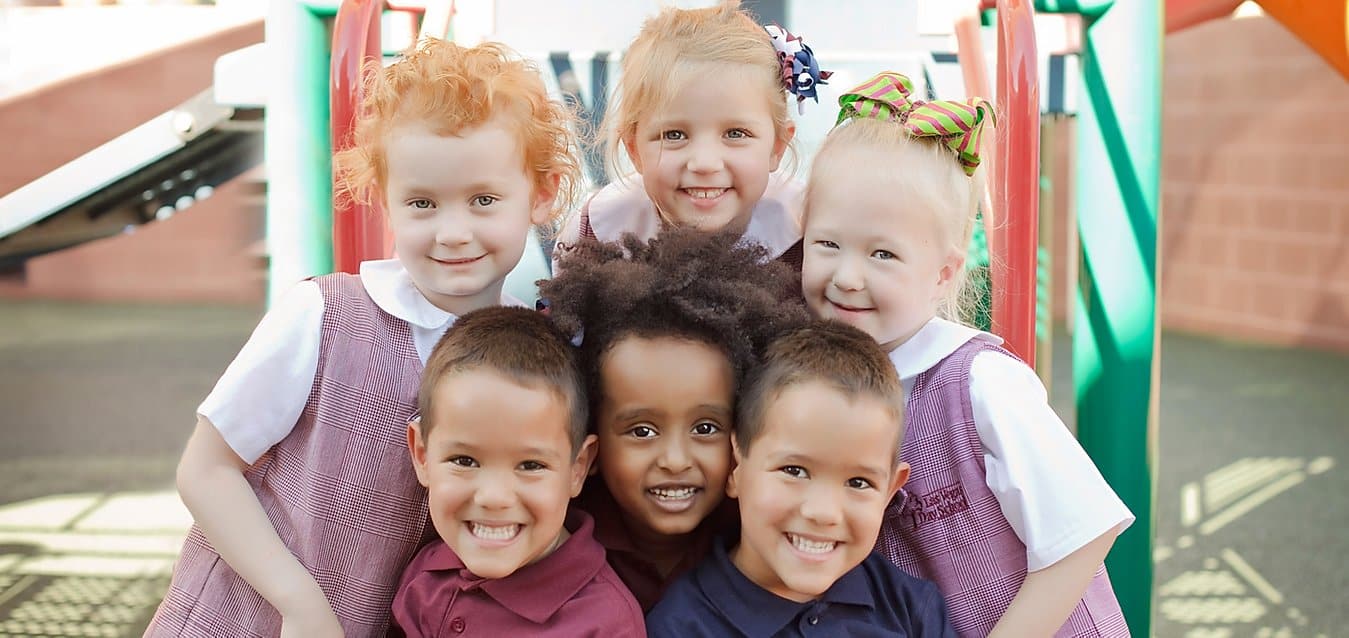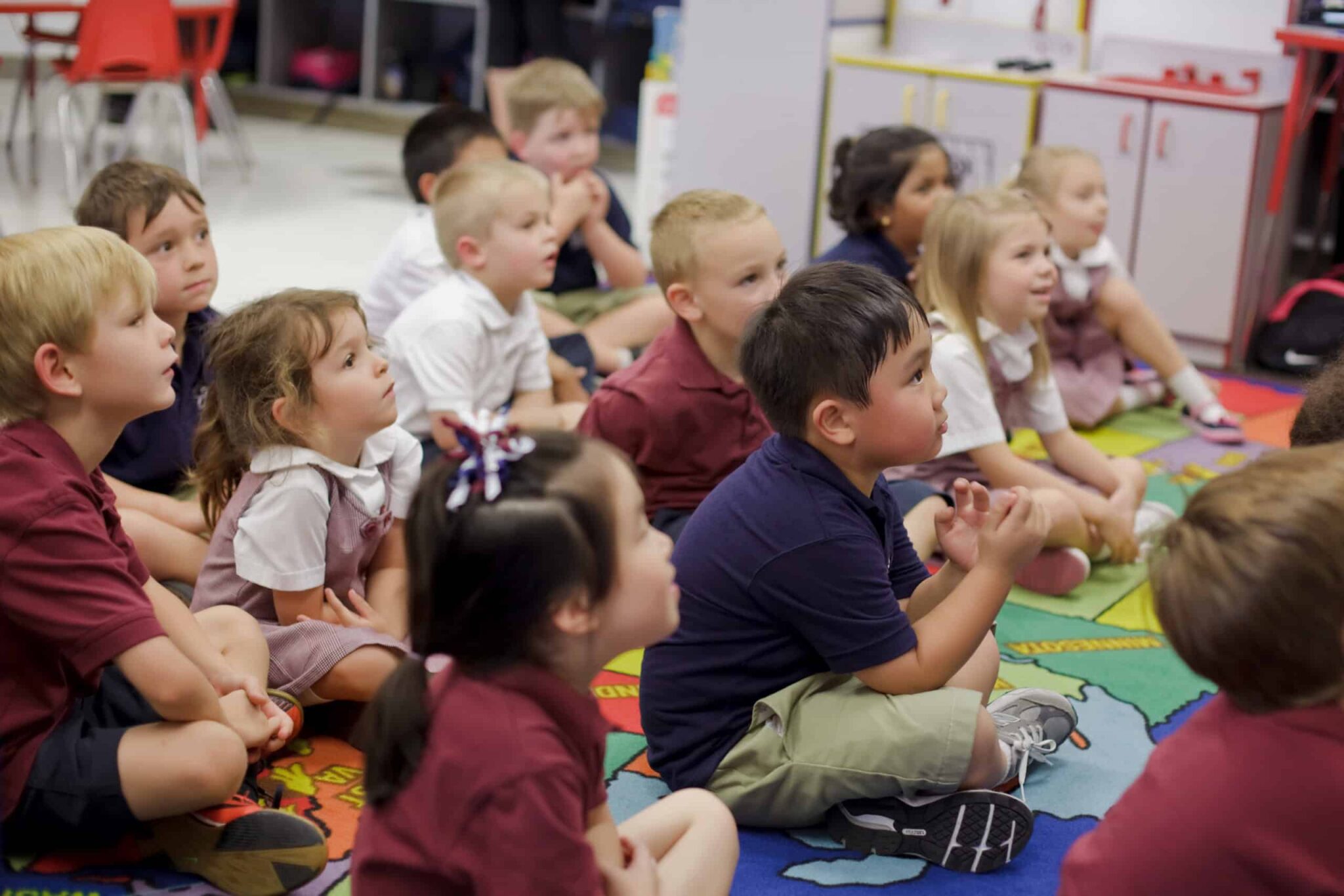The program emphasizes reading readiness instruction in matching, labeling,
classification, sequencing (picture story), and symbolic ability (naming letters and sounds). Students develop the phonetic approach to reading by learning to isolate and blend the beginning, middle, and ending sounds of words, and to identify rhyming sounds. In addition, students will strengthen their reading ability through exposure to a list of basic sight words. They are also introduced to a broad, balanced-literacy approach to early learning that reaches into all areas of the curriculum and will ultimately foster an appreciation of good literature. Comprehension includes understanding special relationships and opposites, recalling the main idea, details, cause-and-effect relationships, and outcome, as well as distinguishing reality from fantasy in stories and pictures.
In mathematics, the children learn to match (one-to-one), model and count to fifty and beyond, recognize and write numerals, and understand their values. Sequence and use of ordinal numbers are also taught. Geometric shapes (2D and 3D), weights and measurements, coin identification, graphing, beginning addition and subtraction, and time concepts are also introduced at this stage.
Motor skills are emphasized from gross motor skills in the physical activities of running, skipping, hopping, throwing, etc., to the fine motor skills of controlling a pencil, crayon, and scissors. The children have a variety of planned activities in learning centers that use different art skills including tracing, coloring, cutting, and painting. These activities offer pleasing and creative rewards while refining the child’s eye-hand coordination and fine motor skills.
The social-emotional development in the class requires a respectful and positive attitude toward oneself and others. Emphasis is placed on developing listening skills, which helps create a learning environment for individual direction and group cooperation with mutual appreciation.
Children are introduced to enrichment specials including Spanish, music, art, and physical education. Children attend weekly story time in our library.


